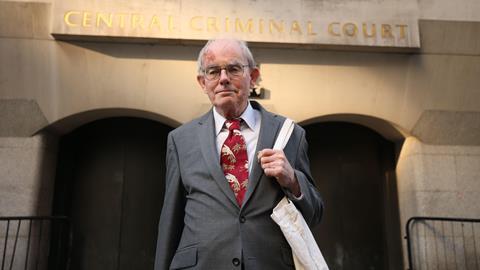Journalist and former MP Chris Mullin does not have to hand over unredacted notes of his interview with a man said to have been involved in the Birmingham pub bombings, a judge ruled today.
Mullin, 74, investigated the IRA terrorist attacks at two pubs in 1974, which killed 21 people and injured more than 200 others. He said that he interviewed an individual who claimed to have planted the bombs. Mullin's journalism – which led to the 1986 book Error of Judgement – helped clear the names of the Birmingham Six, who served 17 years in prison for the bombings before they were released in 1991.
West Midlands Police applied for a production order to force Mullin to provide unredacted notes of interviews in the late 1980s and early 1990s with two men, one of who is said to have made a ‘full confession to murder’.
At a hearing last month, Mullin’s counsel Gavin Millar QC said the case was ‘deeply concerning … especially to anyone who cares about public interest, investigative journalism’.
Judge Mark Lucraft QC today ruled that the public interest in protecting journalistic sources outweighed the potential importance of the material sought by the police, saying that ‘there is not an overriding public interest in denying the Article 10 [ECHR] rights that are in play’.
Speaking outside the Old Bailey, Mullin said: ‘The right of a journalist to protect his or her sources is fundamental to a free press in a democracy. My actions in this case were overwhelmingly in the public interest.
‘They led to the release of six innocent men after 17 years in prison, the winding up of the notorious West Midlands Serious Crimes Squad and the quashing of a further 30 or so wrongful convictions. This case also resulted in the setting up a royal commission which, among other reforms, led to the setting up of the Criminal Cases Review Commission and the quashing of another 500 or more wrongful convictions.’
His solicitor Louis Charalambous of Simons Muirhead Burton said: ‘This is a landmark freedom of expression decision which properly recognises the public interest in Chris Mullin’s journalism which led to the release of the Birmingham Six.
‘If a confidential source cannot rely on a journalist’s promise of lifelong protection then these investigations will never see the light of day.’
This article is now closed for comment.




























6 Readers' comments